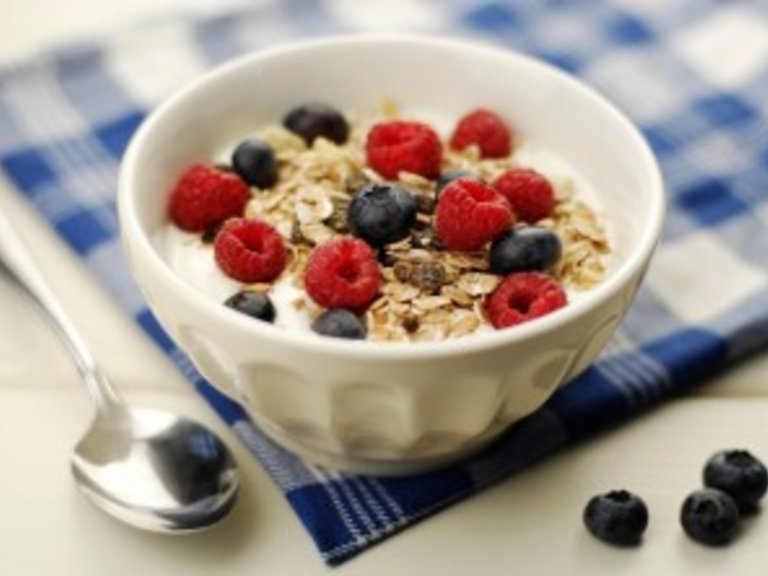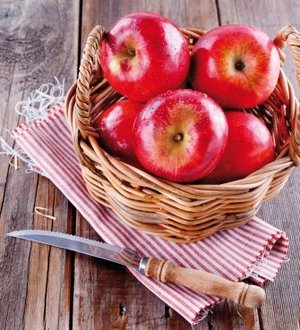All you have to do is to stick to five basic nutritional suggestions, follow some easy advice about your carbohydrate intake and monitor your blood glucose regularly.
Diabetes & Good Food

As a diabetes patient on dialysis your diet can still be filled with delicious, nutritious foods. If you know what your body needs, you know what to eat. And if you choose the right things, your life can be better. A few simple changes to what you eat will make your life with dialysis and diabetes easier and let you enjoy life to the full.
Count your carbs

The main function of carbohydrates is to store energy in your body. Some, like those found in sugar, are absorbed quickly, other more complex carbohydrates take longer to break down, and provide energy over a longer period of time. All carbohydrate containing foods (e.g. bread, cereal, pasta, rice, starchy vegetables, fruits, juices and many sugar-free desserts) increase your blood glucose levels, so it’s important to manage your intake carefully. Try to eat about every three hours during the day (meals and snacks). A bedtime snack (with protein) will help stabilise night-time blood sugar!
As a diabetic it is important to learn to recognise which foods contain carbohydrates and be able to estimate quantities. By doing so, the total amount of carbohydrates you eat will be balanced with your medicines and level of physical activity. Your dietician may have taught you a system called carbohydrate counting to keep your carbohydrate intake under control.
Are there any foods I should avoid?
One important source of carbohydrates in our diet are cereals and cerealbased products such as bread, cake or muesli. If your phosphate levels allow it, choose multi-grain products (e.g. wheat and rye) because the high fibre content is very filling and as absorption is slower they raise your blood sugar more slowly. Small amounts of oats are also a suitable choice.
The same goes for fresh vegetables, potatoes, legumes, pasta, milk and some fruits. All of these have a lower “glycaemic index”, i.e. how fast and how much a food raises blood glucose levels. Please note however that some very sweet fruits like grapes have a quite high glycaemic index.
While in the past table sugar (sucrose) was a taboo for diabetics, today a small amount of “packaged” sugar in the form of e.g. chocolate is fine as an occasional treat. Sugary beverages and food with a high sugar content are still best avoided, because the sugar is absorbed rapidly and can cause your blood glucose levels to rise sharply.
Remember
- carbohydrates increase your blood glucose level
- manage your intake carefully by counting your carbs
- instead of sugary beverages opt for water and herbal or fruit teas in the recommended amounts
- eat less refined grains/cereals, and wherever possible choose foods with a lower glycaemic index (GI)
Monitor your blood glucose

Diabetes means that too much sugar ends up in your blood. Normally, the amount of sugar in the blood is controlled by a hormone called insulin, produced by the pancreas. During digestion, many foods turn into glucose and enter your bloodstream. Insulin helps to move glucose out of the blood and into cells, where it is used as energy. In diabetes, because there is either not enough insulin, or because your cells don’t respond to the insulin, the body is unable to fully use the glucose in the bloodstream. If left untreated, these high blood sugar levels, or hyperglycaemia, can lead to diabetic coma.
As a diabetic you should monitor your own blood glucose level using a home blood glucose monitoring machine. If you don’t have one, speak to your doctor about it. This simple test will tell you if your blood glucose levels are in an acceptable range at any time. Your doctor will perform another test which measures the average blood glucose level over a period of three months. The results show you how well you are controlling your diabetes.
Sometimes I feel so thirsty...
Did you know that uncontrolled high blood glucose levels can also increase your thirst? Please remember that as a dialysis patient, you need to watch the amount of liquids you consume. Consuming too many liquids leads to overhydration, which can have negative effects on your circulatory system. If you check your glucose and keep it under control, it will help you to manage your thirst and liquid uptake. Your dietician will recommend a specific fluid allowance for your individual situation.
Do I need extra vitamins?
A good vitamin supply is essential for diabetes patients, as vitamins can absorb some of the harmful substances in the blood. Check out the recommendations of Good Food Routine 5 and take those vitamins specifically recommended for you by your doctor.
Remember
- monitor your blood glucose level regularly
- high blood sugar will make you thirsty, try to control it well
- check your fluid allowance with your dietician or nephrologist
- regular exercise will help you avoid high sugar spikes
![[Translate to UK - englisch:] [Translate to UK - englisch:]](/fileadmin/_processed_/3/7/csm_slider_1_31be01aee8.jpg)
![[Translate to UK - englisch:] [Translate to UK - englisch:]](/fileadmin/_processed_/b/6/csm_Stir-fried_Chicken_homeTeaser_453c12faa7.jpg)